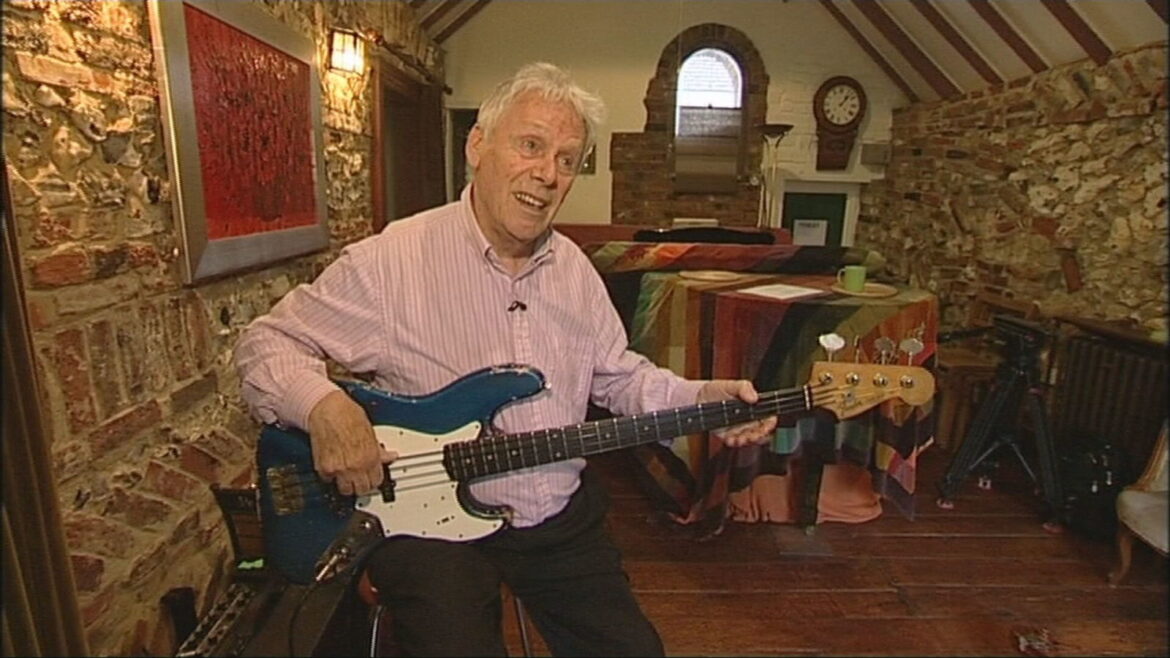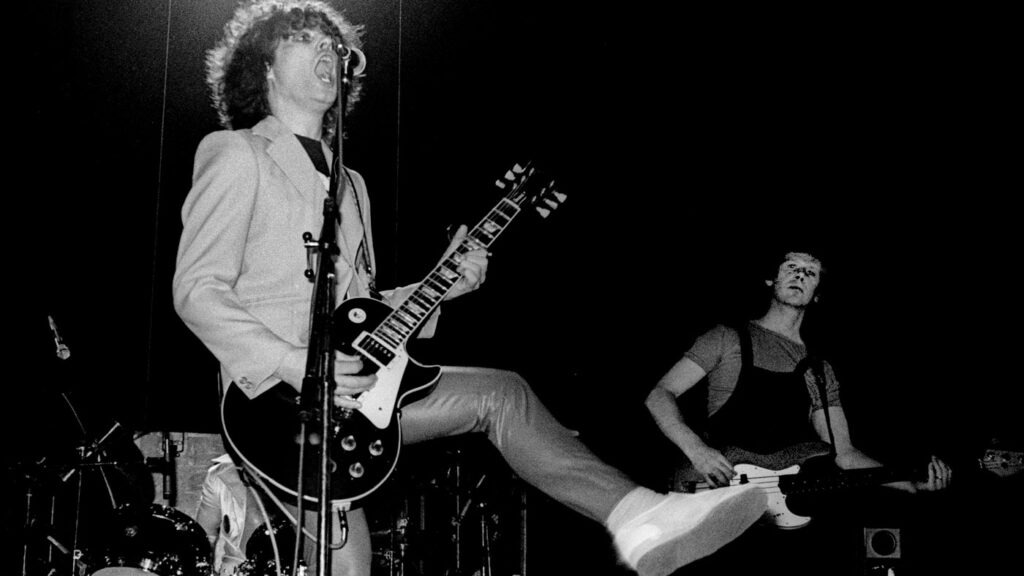
Herbie Flowers (May 19, 1938 – September 5, 2024) was a prolific and influential English musician, primarily known for his expertise on the bass guitar, double bass, and tuba. Throughout his remarkable career, Flowers contributed to an array of iconic recordings, not only as a member of various bands but also as a sought-after session musician. His unique approach to the bass and distinctive sound made him a vital component of some of the most memorable tracks of the 20th century. Over his career, he worked with an impressive roster of artists, including Lou Reed, David Bowie, Elton John, T. Rex, and many more.
Early Life and Musical Beginnings
Herbie Flowers was born Brian Keith “Herbie” Flowers on May 19, 1938, in Isleworth, England, Flowers showed an early inclination towards music. Initially studying tuba, he later expanded his instrumental range to include bass guitar and double bass. This versatility would become one of his trademarks throughout his career. Flowers’ formal training on the tuba gave him a strong understanding of brass instrumentation, which later informed his bass playing, allowing him to bring a depth and subtlety to his contributions across various musical genres. By the late 1950s, he was already an active musician in the London music scene.
Breakthrough in the 1960s: Blue Mink and Session Work
Herbie Flowers’ career truly began to take off in the 1960s, a decade of unprecedented musical innovation. He became a member of Blue Mink, a British pop group known for blending elements of rock, soul, and funk. Formed in 1969, Blue Mink had several hits in the UK, and Flowers’ bass playing was integral to their sound. His style, blending rhythmic precision with melodic inventiveness, helped establish him as one of the most promising bass players of the era. While with Blue Mink, Flowers also began to establish his name in the world of session musicianship.
By the late 1960s, Flowers was working regularly as a session musician, contributing to a wide array of projects. It was this work that brought him into contact with many of the era’s biggest stars. Flowers had an uncanny ability to adapt to different genres, from rock to jazz to funk, which made him a versatile and in-demand player. His professionalism and distinctive sound contributed to the success of numerous hit records, and by the early 1970s, Flowers had solidified his reputation as one of the leading bassists in the UK music scene.
The 1970s and the Rise of a Session Legend
The 1970s marked the peak of Herbie Flowers’ career as both a band member and a session musician. During this time, he became a member of T. Rex, playing with Marc Bolan and helping to shape the glam rock movement that defined the early part of the decade. Flowers’ work with T. Rex was notable for its blend of swagger and groove, contributing to the success of tracks like “Telegram Sam” and “Children of the Revolution.”
His collaborations weren’t limited to just bands. One of Flowers’ most famous contributions to music came in 1972 when he played bass on Lou Reed’s landmark single “Walk on the Wild Side.” The track, produced by David Bowie and Mick Ronson, featured a simple yet hypnotic bassline, with Flowers famously playing both the double bass and electric bass parts. The sliding notes and rhythm, paired with Reed’s storytelling lyrics, helped define the song’s unique character. Flowers reportedly earned just £17 for the session, though the bassline would go on to become one of the most iconic in rock history. “Walk on the Wild Side” is often cited as a quintessential example of the power of simplicity in bass playing.
Throughout the decade, Flowers also worked with some of the most influential artists of the time, including David Bowie, Elton John, Harry Nilsson, Bryan Ferry, and members of the Beatles. His work with Paul McCartney, George Harrison, and Ringo Starr further cemented his role as a go-to session bassist for British rock royalty.
Another of Herbie Flowers’ significant achievements during the 1970s was his contribution to Jeff Wayne’s Musical Version of The War of the Worlds. The concept album, released in 1978, was a massive commercial success and remains one of the most ambitious rock-operatic projects of the time. Flowers’ bass lines played a crucial role in bringing the epic soundscape of the album to life, further demonstrating his ability to elevate any project he worked on.
The Creation of Sky and Continued Success
In the late 1970s, Herbie Flowers co-founded the classical rock fusion band Sky. The group was a unique fusion of progressive rock and classical music, featuring esteemed classical guitarist John Williams. Sky’s music blended rock elements with baroque and classical influences, and Flowers’ bass playing was essential to the band’s sound, anchoring the more experimental elements of their compositions with his solid, rhythmic foundations. Sky achieved significant success, releasing several albums and performing around the world. Flowers’ work with the band demonstrated his continued willingness to explore new musical landscapes, while also reinforcing his versatility as a musician.
Prolific Session Career: An Estimated 500 Hit Recordings
By the end of the 1970s, Herbie Flowers had played bass on an estimated 500 hit recordings. His session career was nothing short of extraordinary, and his ability to adapt to different artists’ needs while still leaving his own mark was key to his success. Whether laying down a funky groove, as he did with David Essex, or adding subtlety and precision to a Cat Stevens track, Flowers’ contributions were always tasteful and effective. His ability to blend into the background while still elevating a track was perhaps his greatest gift as a session musician.
In addition to his technical skill, Flowers’ approach to the bass was characterized by a deep understanding of space and dynamics. He had a knack for knowing when to play and, just as importantly, when not to play. This restraint and musicality allowed him to support the song and the artist, ensuring that the bass never overshadowed the other elements of the track.

Legacy and Influence
Herbie Flowers left an indelible mark on the world of music. His contributions to some of the most iconic songs and albums of the 20th century ensure that his work will be remembered for generations. Flowers was a consummate professional, always serving the needs of the music while adding his own distinctive touch. His versatility as a musician, combined with his collaborative spirit, made him one of the most respected bass players in the business.
Though Herbie Flowers passed away on September 5, 2024, his legacy lives on through the music he helped create. From Lou Reed’s “Walk on the Wild Side” to Jeff Wayne’s epic “The War of the Worlds,” Flowers’ bass lines continue to inspire musicians and music lovers alike. His contributions to the music world are immeasurable, and he remains a towering figure in the world of session musicianship, having helped shape the sound of modern rock, pop, and beyond.
Check out Herbie Flowers on Amazon.
.

